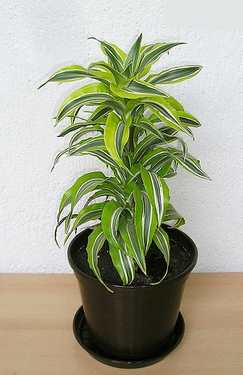
(NaturalNews) The science is irrefutable on this simple fact: Roundup weedkiller, manufactured by Monsanto, is a deadly chemical poison that persists on — and in — the food crops consumed by millions of people. And the many consequences of Roundup’s continued use in commercial agriculture are reason enough, at least to any rationally minded individual, to ban the toxic chemical cocktail forever for the sake of the environment and humanity.
These are strong words, but they are fully substantiated. In a recent piece published by Rodale News, the site’s online editor outlines five disturbing facts about Roundup which prove that it belongs in the dustbin of history and not on the forefront of modern food production. Roundup does not biodegrade as claimed; it is not innocuous, and it is killing the land, the animal kingdom and, ultimately, humanity.
Roundup Ready crops absorb glyphosate
Despite industry claims, Roundup does not simply wash off crops after it has been sprayed. A study out of Norway recently found that glyphosate accumulates inside crops at “excessive” levels.
Published in the recent June issue of the journal Food Chemistry, the study revealed that, while Roundup Ready crops are capable of resisting glyphosate in order to survive, they also absorb it and incorporate it into food. This means that people who eat GM soy or products derived from it, including soy lecithin and soy protein, are also eating a chemical solution linked to all sorts of health problems.
Exposure to Roundup doubles risk of lymphoma
The government maintains the same position as Monsanto — that glyphosate is essentially inert and not something to worry about. But a recent review of more than 44 published scientific studies found otherwise, having determined that exposure to glyphosate doubles farmers’ risk of developing non-Hodgkin’s lymphoma.
“The study authors theorize that glyphosate disrupts the normal functioning of white blood cells, throwing your immune system into a sickened, dysfunctional state,” wrote Leah Zerbe for the blog Maria’s Farm Country Kitchen.
Roundup so heavily used that it’s being found in air, rainwater
It would be one thing if Roundup were isolated just to crop fields. But scientists are finding that the chemical is now spreading to the air, and even raining down along with precipitation. This means that glyphosate is now traveling with the wind patterns and raining down on people’s homes and on city parks where children play.

Roundup is killing butterflies and other pollinators
Even if Roundup really was helping to boost yields and produce more food — as demonstrated here and elsewhere, this is not actually the case — the harm inflicted on butterflies and other pollinators by the GM crop pesticides is simply inexcusable.
Researchers from Iowa State University found that glyphosate use has resulted in an 81 percent reduction in the monarch butterfly population, which relies on milkweed for reproduction and survival. Like bees, monarch butterflies serve as crop pollinators. Without them, many seed- and fruit-bearing plants would be unable to survive.
Roundup doesn’t even work as claimed
Perhaps the biggest reason why Roundup deserves to be banned forever is that the weedkiller does not even work. Overuse of Roundup has led to the emergence of highly resistant “superweeds” that no longer respond to chemical treatments and now plague millions of acres of U.S. crop land.
Because of this, the U.S. Environmental Protection Agency (EPA) is gearing up to approve an even more deadly herbicide made from a component of Agent Orange, the Monsanto biowarfare chemical used during the Vietnam War.
Visit GMOs.NaturalNews.com for more information and breaking news on GMOs.
Learn more: http://www.naturalnews.com/045599_Roundup_glyphosate_environmental_damage.html#ixzz34vqZAXjJ

 Using space station technology to ensure the safety of your home may be easier than you thought. The National Aeronautics and Space Administration conducted the NASA Clean Air Study to demonstrate the effectiveness of particular plants to purify air. As homes become more insulated and efficient, they also make it easier to trap indoor air pollutants. Chemicals like benzene, formaldehyde, and ammonia can come from household items and pollute your home’s atmosphere without any visual warning. Neglecting the quality of the air you breathe on a daily basis could result in serious consequences. Illness, allergies,
Using space station technology to ensure the safety of your home may be easier than you thought. The National Aeronautics and Space Administration conducted the NASA Clean Air Study to demonstrate the effectiveness of particular plants to purify air. As homes become more insulated and efficient, they also make it easier to trap indoor air pollutants. Chemicals like benzene, formaldehyde, and ammonia can come from household items and pollute your home’s atmosphere without any visual warning. Neglecting the quality of the air you breathe on a daily basis could result in serious consequences. Illness, allergies, 


